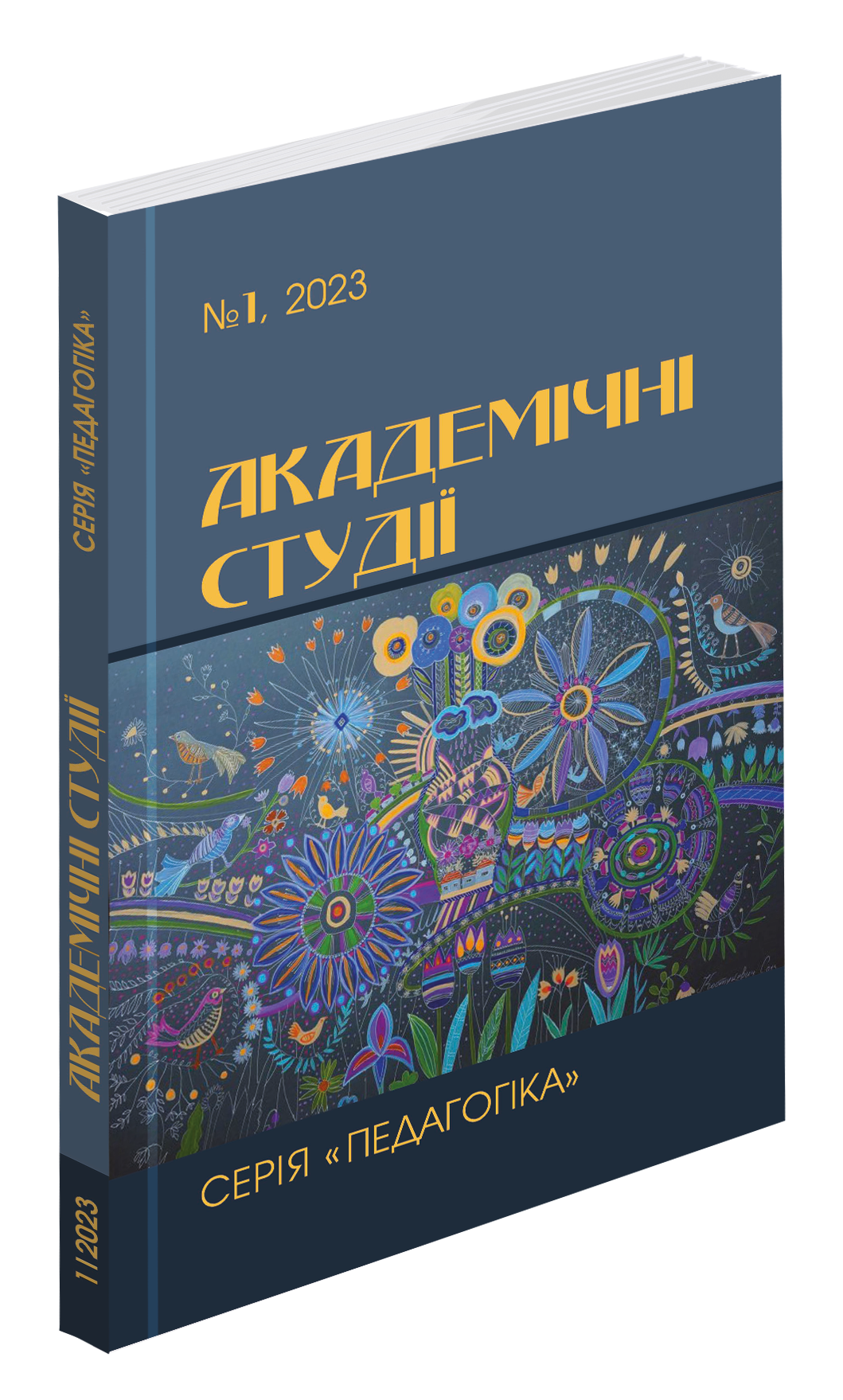Abstract
Important professional skills of a modern preschool teacher are the ability to manage one’s emotions, to love and understand all children, regardless of their mental and physical-psychological development; respond adequately to various manifestations of conflict behavior, ensuring tolerant interpersonal interaction with all participants of the educational process based on partnership, empathy, creativity and development. Hence, the need to develop psycho-emotional competence in future educators as one of the important components of professional competence is logical. The purpose of the article is to investigate the specifics of determining its formation in future educators of preschool education institutions, based on clarification of the content and structure of psycho-emotional competence. To realize the goal, the following tasks were solved: 1) the content and structure of the psycho-emotional competence of the future educator were specified; 2) the methodical principles of diagnosing the state of formation of psycho-emotional competence in students of higher education OPP 012 Preschool education are defined. Research methods: analysis, synthesis, generalization. In the article, based on the generalization of various interpretations, the concept of psycho-emotional competence of a preschool teacher is defined as an integral personal ability to objectively perceive and adequately respond to various conflict situations, changes, emotional information; control and regulate one’s own and other people’s emotions; have flexibility, adaptability and stress resistance; organize and regulate constructive tolerant interpersonal interaction; to understand the motives of various manifestations of behavior, to reflect; show empathy, be capable of self-control and selfregulation. Taking into account the specifics of the activity of a preschool teacher, in the structure of the studied concept, in addition to the traditional components: self-regulation, reflection, empathy, self-motivation, communication and selfcontrol, a number of other components are highlighted: value orientations, stress resistance, lack of emotional barriers in communication, communicative and organizational abilities, the need for communication, the style of behavior in conflict interaction, psychological adaptability, social flexibility, the ability to self-regulate. It is emphasized that determining the real state of formation of psycho-emotional competence in future educators is a complex systematic, continuous diagnostic (self-diagnostic) process that requires consideration of personal qualities and involves the use of various psychodiagnostic techniques. Techniques for determining the motivational and value component of readiness for professional activity of the future educator (scale of moral and value qualities) are proposed; activity-communicative (priority activity scale); reflective and self-regulatory component (scale of life benefits and selfimprovement). The development of an algorithm for the formation of psycho-emotional competence in future educators in the process of education and training requires further research.
References
Дурманенко Є. А. Тюторський супровід обдарованиих дітей дошкільного віку: навчальна програма ОК підготовки студентів за спеціальністю 012 «Дошкільна освіта» : https://lpc. org.ua/wp-content/uploads/2023.pdf
Жизномірська О. Я. Емоційна компетентність як важлива умова в професійному становленні фахівця соціальної сфери. Соціологія та соціальна робота в умовах національних та регіональних викликів : матеріали доповідей та повідомлень міжнародної науково-практичної конференції. Ужгород 27.9.2019 р. / за ред. І. В. Козубовської, Ф. Ф. Шандора. Ужгород : ТОВ “РІК-У”, 2019. С. 31–32.
Калошин В. Ф., Гоменюк Д. В. Як учителю зберегти емоційну стійкість. Харків: Основа, 2018. 128 с.
Кононко О. Л. Емоційна компетентність майбутнього фахівця дошкільної освіти: суть та умови формування. Психолого-педагогічні науки. Наукові записки НДУ ім. М. Гоголя. 2019. № 2. С. 28.
Лазуренко О О. До питання щодо розвитку поняття «емоційна компетентність» у психології. Міжнародний науковий журнал «Науковий огляд». Т.1. № 11. 2015. https://www.naukajournal.org/index.php/naukajournal/issue/view/22
Матійків І. М. Тренінг емоційної компетентності : навч.-метод. посібник. Київ: «Педагогічна думка», 2012. 112 с.
Орап М. Тест на психологічне здоров’я. https://www.0352.ua/news/2438015/test-na-psihologicne-zdorova-proponuut-projtiternopolanam (дата звернення: 20.03.2023).
Про затвердження професійного стандарту «Вихователь закладу дошкільної освіти» : Наказ Міністерства економіки України від 19 жовтня 2021 року № 755-21 / Міністерство освіти і науки України. URL: https://mon.gov.ua/ua/ news/zatverdzheno-profesijni-standarti-kerivnika-ta-vihovatelya-zakladu-doshkilnoyi-osviti (дата звернення:
03.2023)
García Sancho E., Salguero J.M., Fernández-Berrocal P. Ability emotional intelligence and its relation to aggression across time and age groups. Scandinavian journal of psychology. 2017. № 58 (1). Р. 43–51. DOI: 10.1111/sjop.12331
